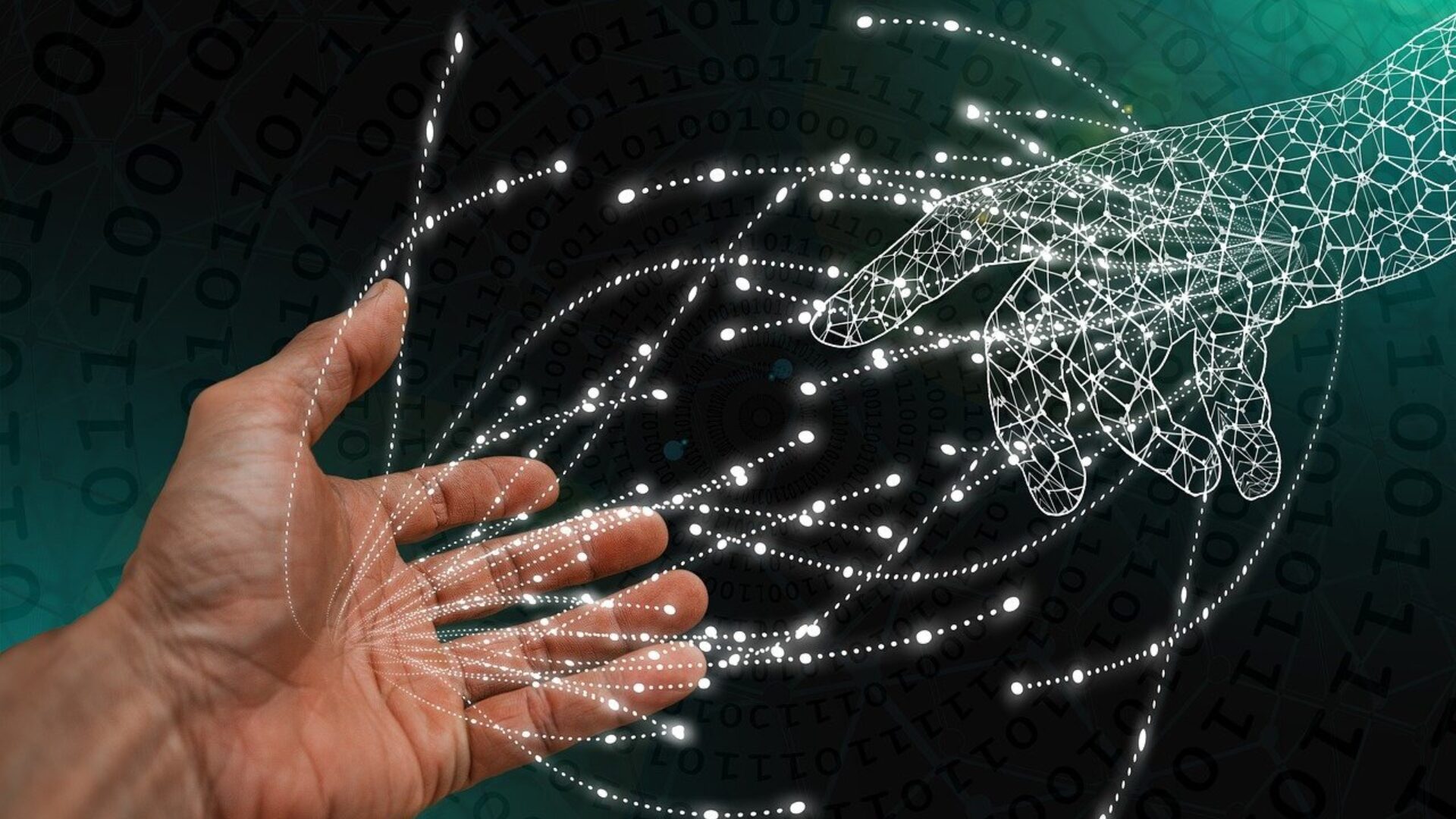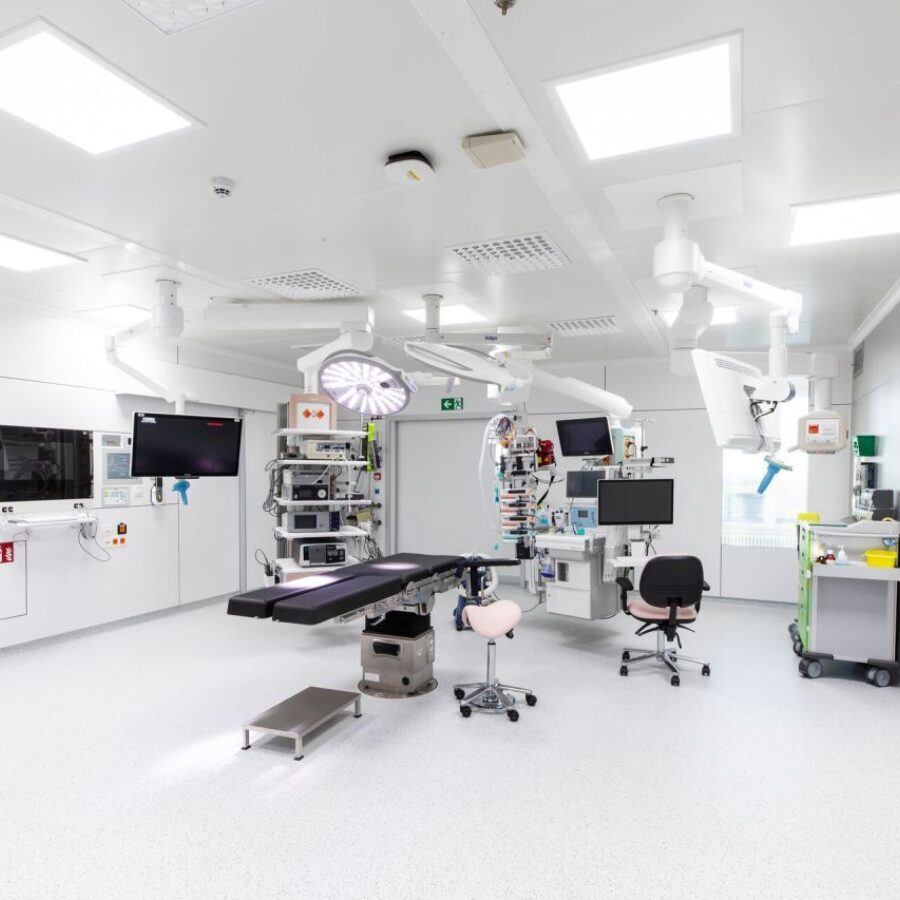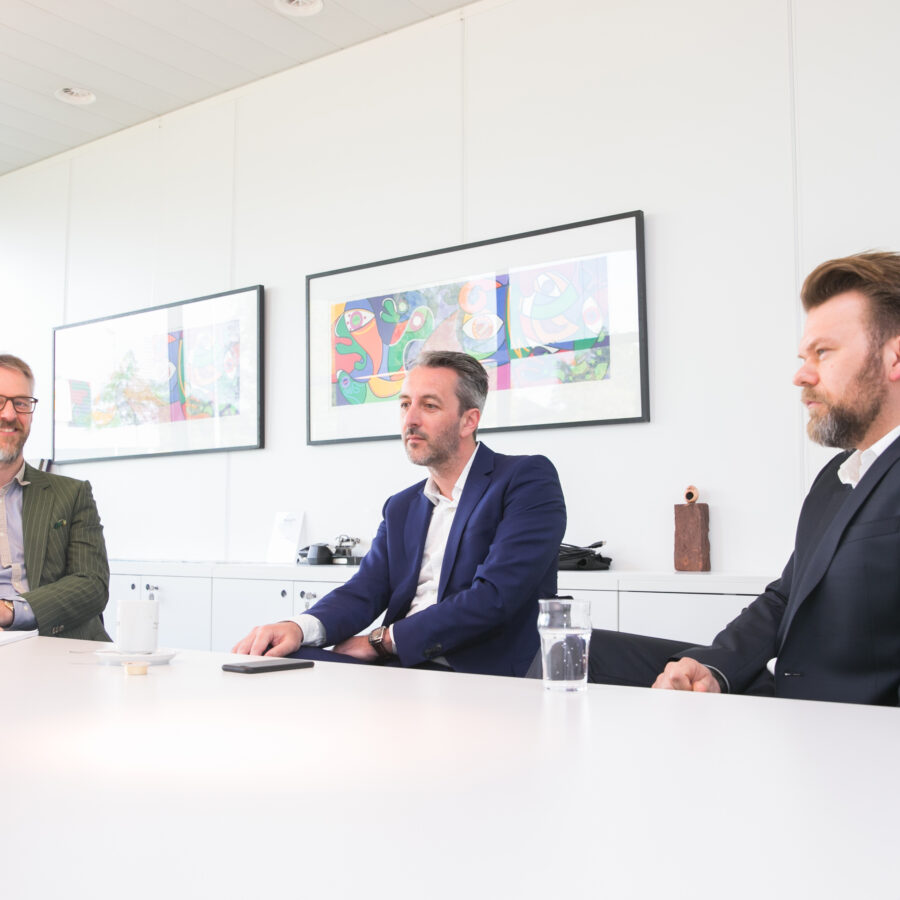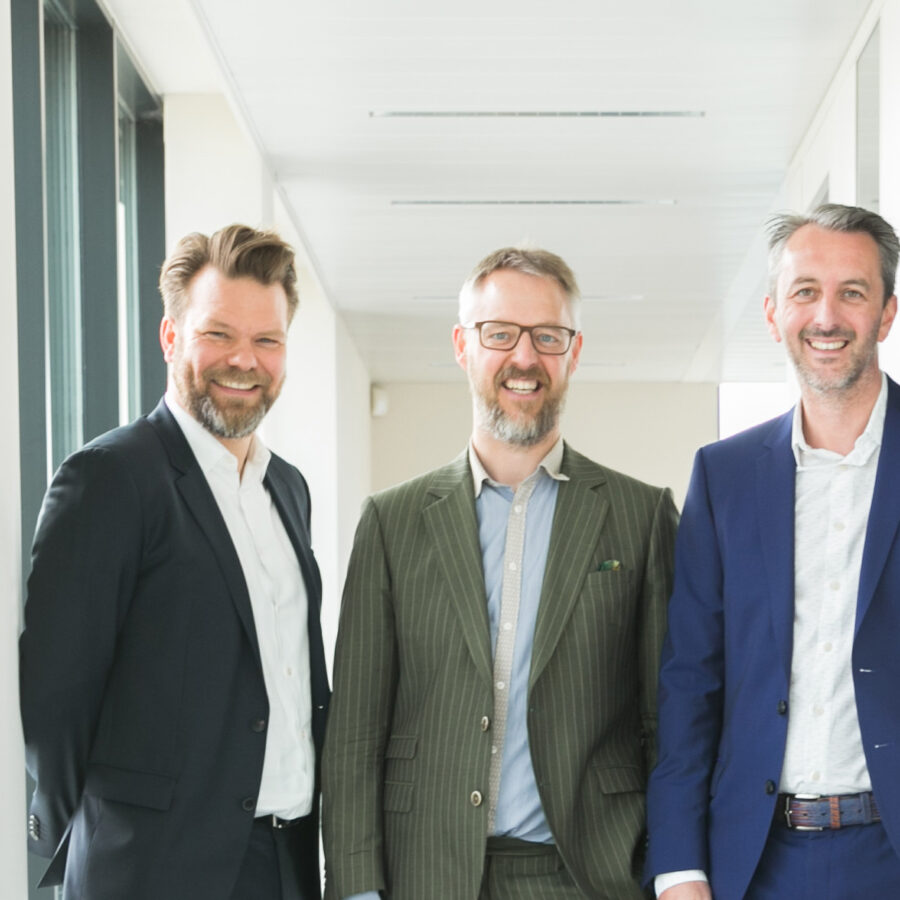
Digitization: a common thread throughout our company's history
Teams, email, ChatGPT, specialized software packages... Digitization is a trend that has been unstoppable for years. With Niko Fierens, Wouter and Nicolas Van Goeye, we're discussing how digital tools have transformed the way MULTI.engineering operates over the years.
How important is digital performance for MULTI.engineering?
Wouter Van Goeye: In our early years, MULTI.engineering was truly a pioneer in the digital realm. Our strong focus on digital tools and platforms helped us efficiently organize from the very beginning. Over the years, we have continued to evolve, and the digital aspect has become increasingly important. Our finance and payroll departments, for instance, are now 100% digital. Without boasting too much, we can say that many tools we used in our early years have become standard applications in many companies today.
Nicolas Van Goeye: We design using various digital tools, making the work of our clients easier. We aim to work within the platforms our clients prefer. Furthermore, we design in 3D, utilize efficient e-browser applications, and enable clients to virtually explore the structures we design. In short, anyone collaborating with MULTI.engineering can expect us to prioritize digital efficiency.
Niko Fierens: Digitization is not only important for our clients. For a company with an international focus, it's crucial to enable all employees, no matter where they are in the world, to collaborate seamlessly and efficiently. Digital tools are indispensable for this. Moreover, digitization facilitates a company's internationalization. For example, currently, people from five different countries are working simultaneously on the same project within the same online design environment.
Wouter Van Goeye: However, we must admit that there's still more we can do in the digital realm. Workplace inspections, performance reviews with our employees... all of these will be further digitized in the future.
Nicolas Van Goeye: That's correct. We place great importance on digital efficiency and security. We've put in significant effort regarding cybersecurity, securing our systems, and raising awareness among our employees about the risks. Sensitization is crucial in this context, and a minor lapse in attention can have significant consequences. We also have strong partners guiding us in cybersecurity.
Freedom of choice for software
Can you provide a concrete example of digital applications?
Niko Fierens: For years, our engineering bureau has been designing digital models for ship construction. And it goes beyond that. Within our Fleet Support Services department, for example, we explore how building digital ship systems can offer new services related to incident investigation, maintenance optimization, risk reduction for insurers, integrating new technologies, crew training, and more.
Designing a model to build a ship is relatively straightforward. Developing a model to monitor and optimize the ship's operations afterward is much more complex. For instance, air conditioning and electrical systems often exist in a different digital environment than the rest of the systems. Additionally, the models available during construction lack data crucial for maintenance. Our expertise lies in integrating all these different models into one system and adding extra algorithms and intelligence to simulate the actual situation on a sailing ship as accurately as possible. This isn't always easy.
Nicolas Van Goeye: We could require all our clients to use the same software, but that's not our vision. We believe it's important for companies to have the freedom to choose the package that suits them best, especially when it comes to construction stability. When everyone has to use the same software, you lose a certain degree of specialization. Our vision is to generate all this different information in the package that best suits each discipline, and then bring it together and integrate it.
Wouter Van Goeye: The initiative to digitize certain activities doesn't always come from clients or ourselves. Sometimes, new digital applications are also triggered by specific events. For instance, the gas explosion in Ghislenghien revealed that there was no information available about the exact location of pipelines. Since then, significant efforts have been made, and new regulations have been launched. Today, we regularly receive orders from clients to map their pipelines.
Downsides of Digitization
Do you see any pitfalls in digitization?
Nicolas Van Goeye: You must always be able to correctly assess what you see and ensure you don't get lost in magnifying small details. Seeing the forest through the trees remains the goal. Digital platforms and tools can help us work more efficiently, but you must maintain an overview.
Wouter Van Goeye: Another potential issue is digital stress. Almost everyone is digitally connected almost all the time. In the MULTI.engineering strategy, we pay a lot of attention to disconnection. The mental health of our employees is truly important. Recently, in collaboration with Better Minds at Work, we organized a human capital scan for all employees within the company. This provides us with valuable input to work with in the future.
Niko Fierens: Strong digitization has significantly increased our productivity. But it also means we receive a lot more information through various channels, and there are additional obligations. Workload for reporting has increased significantly in recent years. The same goes for handling confidential information and personal data. This was important in the past as well, but the intensity has greatly increased. We used to sign one NDA per quarter, but today, it's multiple per week. Our contracts with freelancers and employees also include confidentiality clauses, and we have a detailed privacy policy. In this context, we believe it's important for our clients and suppliers to have peace of mind, but it's undeniable that it requires significant effort.
Artificial Intelligence
In which areas do you see further digital developments possible? Through AI?
Niko Fierens: Certainly! AI is no longer just a future prospect; it's here today. However, AI cannot make predictions for new environments because historical data is lacking. We can assist and enrich AI. AI also needs training, especially in certain niches where training is yet to happen. There, we see a potential role for us. Lastly, we need to explore the data we have that could be interesting for AI applications. It's clear that we will be focusing on this in the coming years.
Thank you for this interview.
Also, read our blog about how a focus on talent development has been part of MULTI.engineering's DNA from the very beginning.



